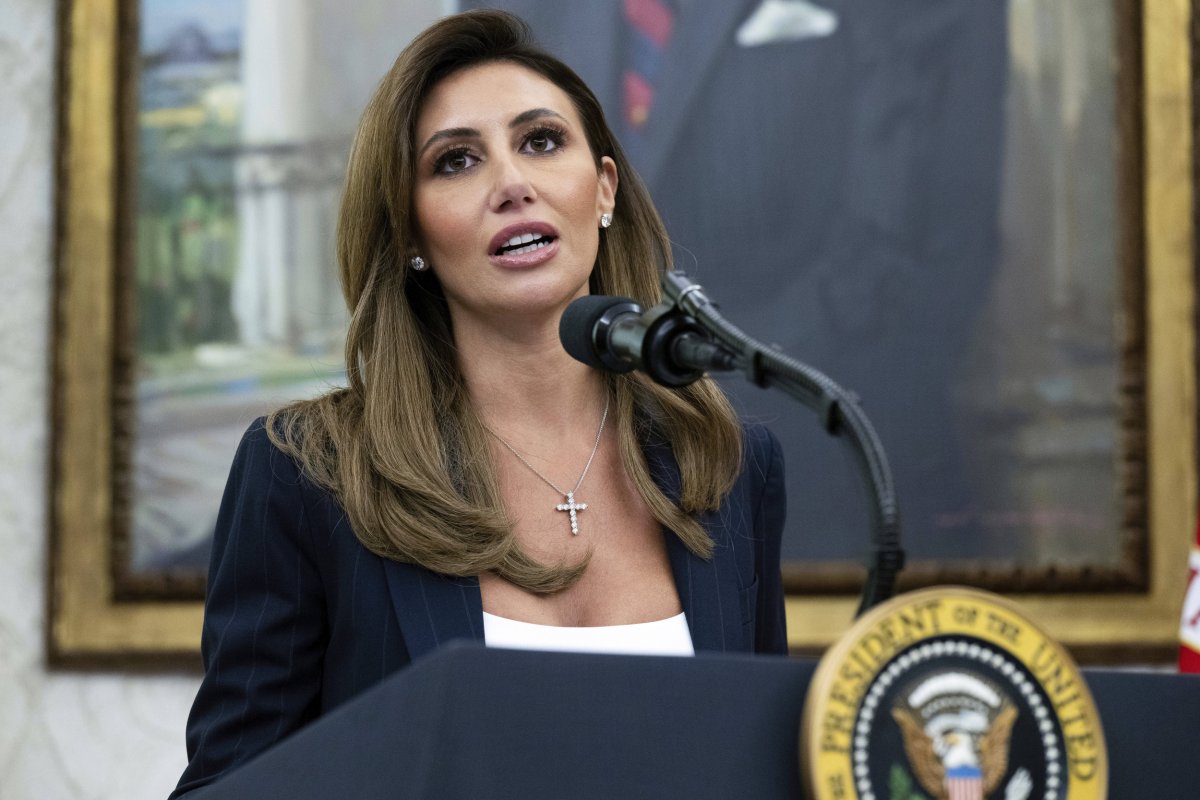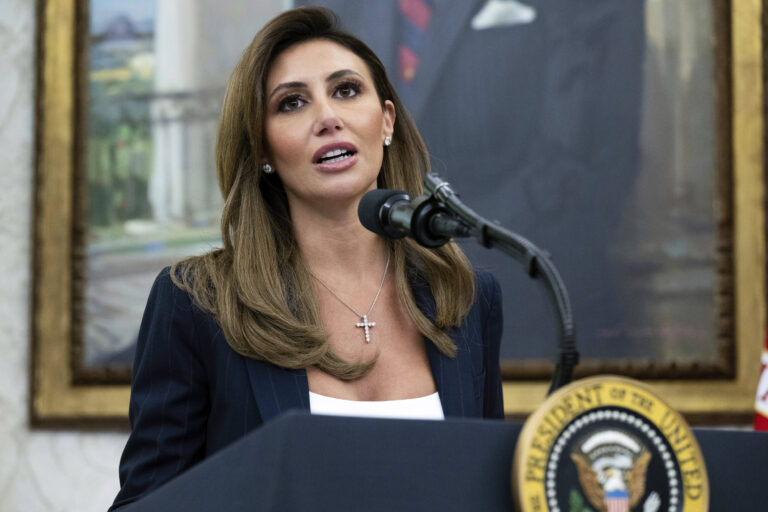A federal judge ruled Thursday that President Donald Trump’s former personal lawyer, Alina Habba, has been unlawfully serving as the top federal prosecutor in New Jersey, declaring that her continued role as U.S. attorney after July violated federal law.
The decision, handed down by U.S. District Judge Matthew Brann, a Republican, concluded that Habba’s statutory term as interim U.S. attorney expired on July 26, 2025, and that subsequent efforts by the Trump administration to keep her in office without Senate confirmation did not comply with governing procedures.
“I conclude that she is not statutorily eligible to perform the functions and duties of the office of the United States Attorney and has therefore unlawfully held the role since July 24, 2025,” Brann wrote.

Associated Press
Why It Matters
Habba’s tenure has been marked by controversy since her appointment. Once a White House adviser and longtime defense attorney for Trump, she was named interim U.S. attorney for New Jersey in March.
At the time, she raised eyebrows by proclaiming that New Jersey could “turn red,” an unusual political remark for a federal prosecutor. She also pledged to investigate the state’s Democratic governor and attorney general, further fueling concerns that her office would pursue overtly partisan cases.
What to Know
While issuing the ruling, Brann, who was nominated to his post by former Democratic President Barack Obama in 2012, said he would put the order on hold pending an appeal. The Justice Department told the Associated Press it intends to appeal the ruling.
The ruling came in response to a filing brought on behalf of defendants in New Jersey, who argued that Habba lacked legal authority to prosecute them after her 120-day interim appointment lapsed in July. The defendants sought to block the charges against them entirely, contending that any case brought under her authority should not stand.
Concerns deepened when Habba’s office brought a trespassing charge against Newark Mayor Ras Baraka over his visit to a federal immigration detention facility. Though the charge was ultimately dropped, Habba followed by indicting Democratic Rep. LaMonica McIver on assault charges stemming from the same incident—an exceedingly rare instance of federal prosecutors bringing a criminal case against a sitting member of Congress outside of corruption allegations. McIver has denied the charges and entered a not guilty plea.
The instability surrounding Habba’s role came to a head in late July, as her four-month appointment was about to expire. With no backing from New Jersey’s Democratic Sens. Cory Booker and Andy Kim, her chances for Senate confirmation were effectively dead under the long-standing practice of “senatorial courtesy,” in which home-state senators can block judicial and prosecutorial nominees. Trump formally nominated her on July 1, but opposition from Booker and Kim sealed her fate. The president subsequently withdrew her nomination.
At that point, federal judges in New Jersey exercised their statutory authority to name a career prosecutor to replace Habba after her temporary term expired. But Attorney General Pam Bondi quickly fired that appointee and reinstalled Habba as acting U.S. attorney, asserting that the executive branch retained authority over federal prosecutorial appointments. The Justice Department, backing Bondi’s move, argued in court filings that the judges had acted prematurely and that the administration had the power to keep Habba in place.
Judge Brann’s decision directly challenges that position, siding with the defendants who argued that Habba had overstayed her lawful authority. His ruling now casts doubt on cases she initiated during her disputed tenure and leaves open questions about how prosecutions handled by her office will proceed. Brann’s stay of his order pending appeal means Habba can continue in the role temporarily, but the legal and political fight over her appointment is far from over.
What People Are Saying
In his opinion Brann questioned the legal moves the administration conducted to keep Habba in place: “Taken to the extreme, the President could use this method to staff the United States Attorney’s office with individuals of his personal choice for an entire term without seeking the Senate’s advice and consent.”
Habba wrote on X in July: “Donald J. Trump is the 47th President. Pam Bondi is the Attorney General. And I am now the Acting United States Attorney for the District of New Jersey. I don’t cower to pressure. I don’t answer to politics,” she added. “This is a fight for justice. And I’m all in.”
What Happens Next
Habba is not alone in this predicament. Several of Trump’s other picks for U.S. attorney across the country are facing similar opposition and procedural hurdles, highlighting the broader tensions between the White House, the Senate, and the judiciary over federal prosecutorial appointments.
Update: 8/21/25, 5:40 p.m. ET: This article was updated with new information and remarks.
This article includes reporting by the Associated Press.


